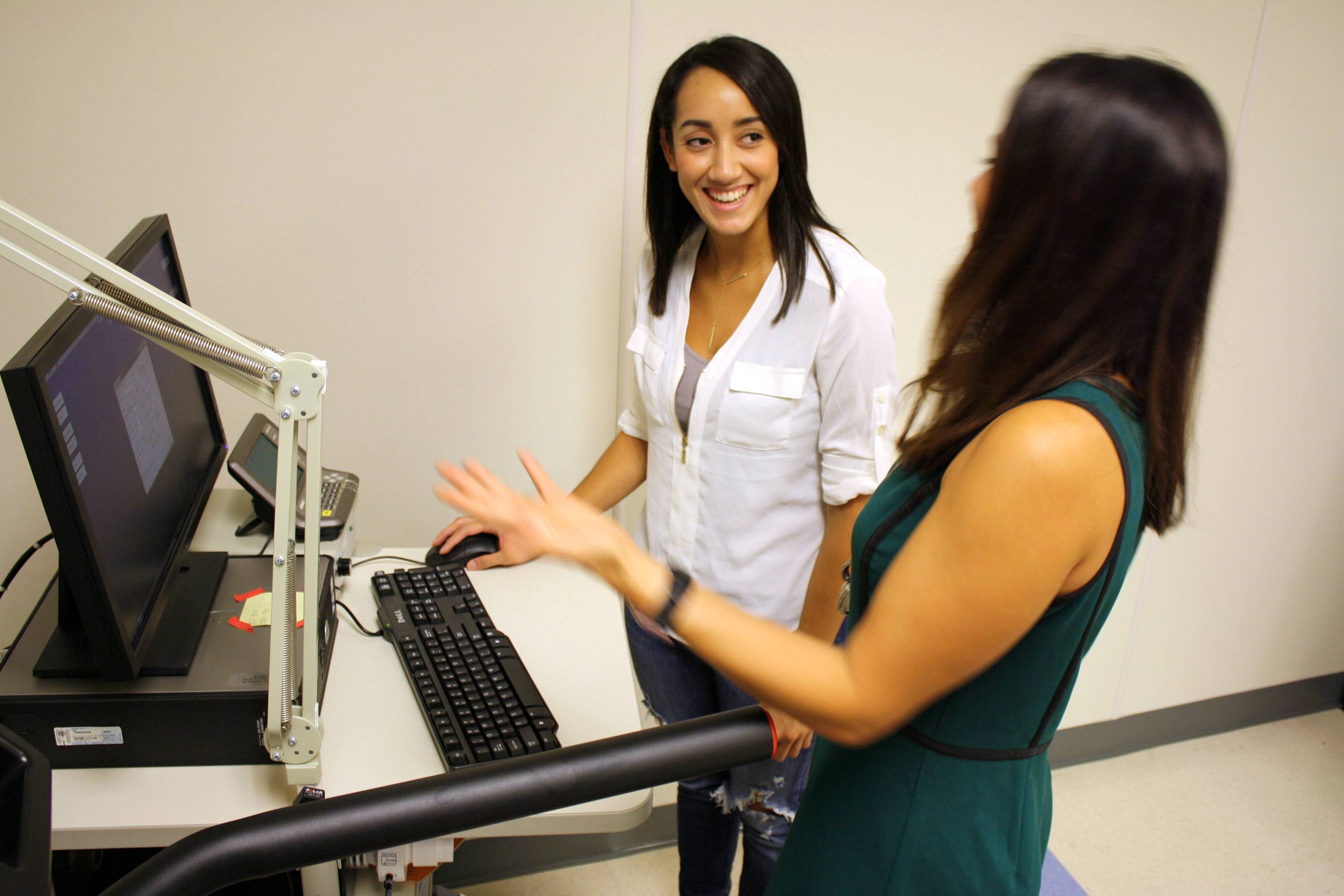Students that combine the Dietetic Internship with the MS are eligible for federal financial aid. Applicants are encouraged to submit their FAFSA by October 31 for early consideration of grants and scholarships. For more information, visit the office of Financial Aid & Scholarships at Texas State.
General Costs
Students who are admitted to the dietetic internship can anticipate the following costs upon enrollment.
Please note that these are estimates. Actual costs will vary depending on enrollment, residency status, and fees.
Additionally, this list does not account for the general costs of living (e.g., meals, housing, and transportation). Those costs will vary from intern to intern.
Enrollment and cost of program for students on the thesis track will depend on research progress and may exceed 33 credits.

| Expense | Estimated Cost |
|---|---|
| In-state tuition and fees for 39 graduate credit hours (take over two years)* | $20,107 |
| Professional dress (e.g., lab coats, scrubs, appropriate shoes) | $200 |
| Textbooks and other supplies | $600 |
| Registration and travel for professional meetings | $150 |
| Academy of Nutrition and Dietetics student membership fee | $58 |
| Post-acceptance health requirements (e.g., health insurance, criminal background check, drug testing, TB testing, | |
| CPR certification)** | $1,000 |
| Immunizations (Tdap, MMR, Hepatitis B, influenza, Varicella, Covid-19) | $500 |
| Orientation fee (pediatric care manual, RD exam prep, liability insurance) | $120 |
| Total Estimated Cost | |
| Resident (in-state) | $22,735 |
| Non-Resident (out-of-state) | $38,530 |
*Listed tuition and fees are approximate and were updated on November 2, 2025, based on the published tuition and fees for Fall 2025. The tuition and fees for Texas residents for 39 graduate credit hours are approximately $20,107. For students who cannot claim residency within the state of Texas, the tuition and fees for 39 graduate credit hours are approximately $35,902. Please see the Student Business Services website for the most up-to-date tuition and fees information and for policies and procedures regarding payment, refunds, and withdrawals. Students placed in clinical rotations in the Rio Grande Valley or Houston will have increased expenses related to travel. For an estimate of expenses for the DI year only, visit Estimated Expenses of TXST Dietetic Internship.
Some graduate courses may be offered in an online or hybrid format. There is an additional $150 fee for registration in distance coursework.
**Post acceptance health requirement costs are approximations and may vary depending on the individual. For example, health insurance coverage details and student medical history may impact individual health insurance premiums.
Travel Expenses

Interns may drive 12,000 miles or more over the course of the internship. Interns should be prepared for the costs associated with that travel and with the maintenance of reliable transportation. Most practicum sites are located along the I-35 corridor between Round Rock and San Antonio, and interns' geographic preferences are taken into consideration when the schedule is made.
In 2018, we began placing interns at Children's Memorial Hermann Hospital (CMHH) in Houston, TX for pediatric rotations. This represents a tremendous opportunity for education in pediatric clinical nutrition. Approximately two interns are placed in six-week rotations at CMHH each year.
In 2021, we began placing interns in clinical rotations up to 11 weeks at Valley Regional Medical Center (VRMC) in Brownsville, TX. Approximately 1-2 interns each year are placed at VRMC, and we make an effort to place interns here who have a connection to the Rio Grande Valley.
Scholarships
Students enrolled in the combined MS/DI program are competitive applicants for a number of University and national scholarships. Explore the links below to see what scholarships you might qualify for.
